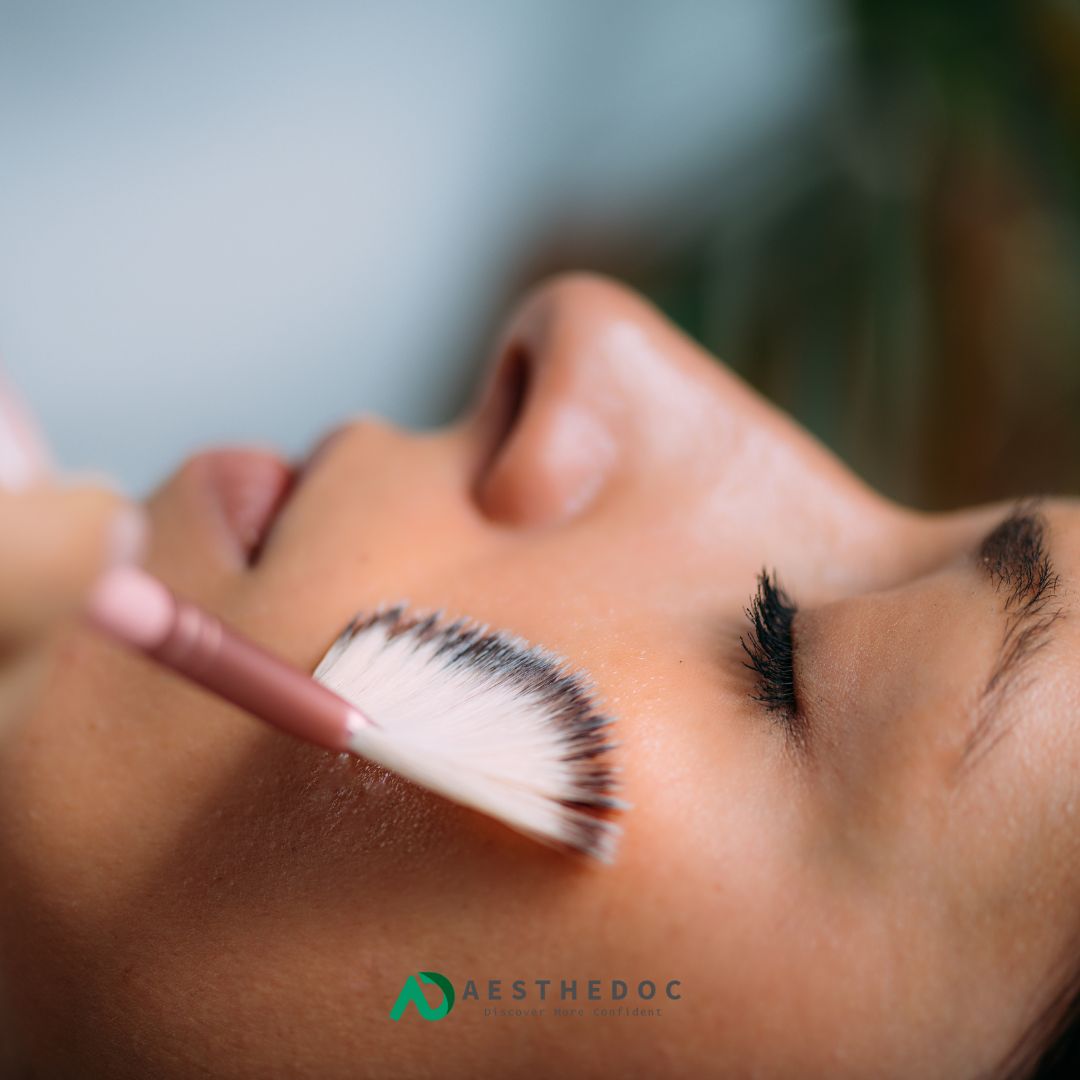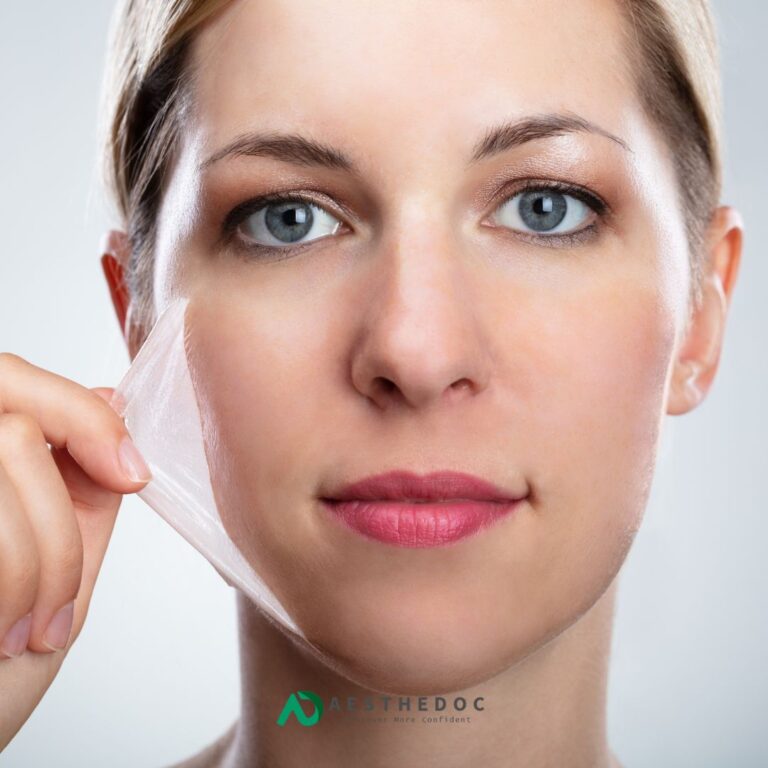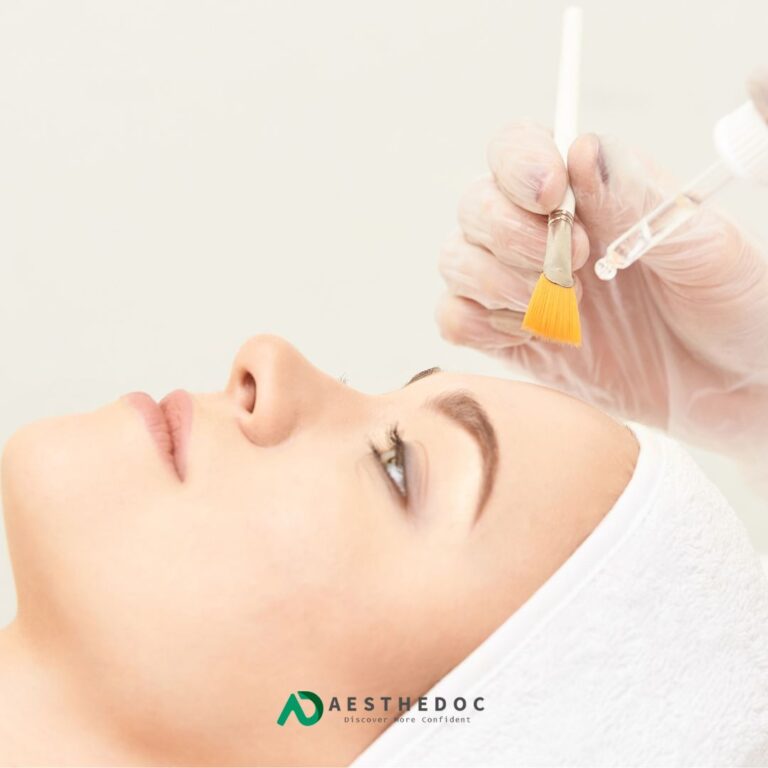Sensitive skin requires special care when it comes to cosmetic treatments, including chemical peels. These treatments can effectively improve skin texture, tone, and appearance, but they must be chosen carefully to avoid irritation and discomfort. The right chemical peel for sensitive skin is one that offers gentle yet effective exfoliation without causing redness, inflammation, or other adverse reactions. In this article, we will explore the best chemical peels for sensitive skin, how they work, and what you can expect from each treatment.
1. Understanding Sensitive Skin
Sensitive skin is characterized by a low tolerance to external factors, which can lead to irritation, redness, and allergic reactions. Common skin concerns for those with sensitive skin include rosacea, eczema, or contact dermatitis. When considering a chemical peel for sensitive skin, it’s important to choose peels that are mild, non-irritating, and specifically formulated to minimize discomfort and risks.
2. Types of Chemical Peels for Sensitive Skin
When it comes to sensitive skin, the type and concentration of the chemical peel play a crucial role in ensuring safety and effectiveness. Here are some of the best options:
- Alpha Hydroxy Acid (AHA) Peels: AHAs like glycolic acid and lactic acid are known for their gentle exfoliating properties. These acids work by dissolving the bonds between dead skin cells on the surface, allowing them to be easily sloughed away. For sensitive skin, AHAs are typically used at lower concentrations to minimize irritation. They are excellent for improving skin texture, reducing fine lines, and lightening hyperpigmentation without overwhelming the skin.
- Mandelic Acid Peels: Mandelic acid is a type of AHA derived from bitter almonds and is larger in molecular size compared to other AHAs. This makes it a gentler option for sensitive skin, as it penetrates more slowly and with less irritation. Mandelic acid peels are effective at treating mild acne, discoloration, and fine lines, while also calming redness and inflammation.
- Salicylic Acid Peels: Salicylic acid is a beta-hydroxy acid that can be effective for sensitive skin types prone to breakouts or acne. It exfoliates the skin’s surface and penetrates deeper into pores to remove excess oil and debris. Although typically more intense than AHAs, lower concentrations of salicylic acid (around 20-30%) can be safely used for sensitive skin, making it an option for those dealing with both aging and acne concerns.
- Jessner Peel: A Jessner peel combines AHAs (lactic acid), BHAs (salicylic acid), and resorcinol in a mild solution. It is designed to be less irritating than deeper peels and is safe for sensitive skin types. Jessner peels can effectively treat mild hyperpigmentation, sun damage, and fine lines without causing significant redness or discomfort.
- Vitamin C Peels: Vitamin C is a potent antioxidant that helps brighten the skin and improve tone. While not a traditional chemical peel, Vitamin C peels can be a gentler option for sensitive skin, offering antioxidant protection and mild exfoliation. They are beneficial for individuals with mild discoloration and sensitivity issues.
3. Choosing the Right Chemical Peel
When selecting a chemical peel for sensitive skin, consider the following factors:
- Skin Type: Your skin type will influence which peel is best suited for you. For instance, those with rosacea or eczema may need to avoid peels that penetrate too deeply or contain strong acids.
- Concentration: Lower concentrations of acids are preferred for sensitive skin. Peels that are too strong can exacerbate irritation or inflammation.
- Consultation with a Professional: Always consult with a skincare professional or dermatologist who can assess your skin type, determine the appropriate peel, and provide guidance on aftercare to prevent irritation.
4. Aftercare and Maintenance
Proper aftercare is crucial for sensitive skin following a chemical peel:
- Sun Protection: Use a broad-spectrum sunscreen with SPF 30 or higher daily to protect newly exposed skin layers.
- Gentle Cleansing: Use a mild, non-irritating cleanser to wash your face. Avoid products with alcohol or excessive exfoliants.
- Hydration: Keep the skin moisturized to prevent dryness and maintain its barrier function.
- Avoiding Harsh Products: Refrain from using retinoids, harsh scrubs, or other irritating skincare products immediately after the peel.
5. Conclusion
Choosing the best chemical peel for sensitive skin requires careful consideration of the skin’s tolerance and the treatment’s concentration. Options like AHAs, mandelic acid peels, salicylic acid peels, Jessner peels, and Vitamin C peels provide gentle exfoliation and are less likely to cause irritation. Consulting with a professional is essential to find the right treatment that balances efficacy and comfort, allowing you to enjoy smoother, healthier skin without compromising on safety. With proper care and the right peel, you can effectively address skin concerns while protecting your skin’s delicate nature.







